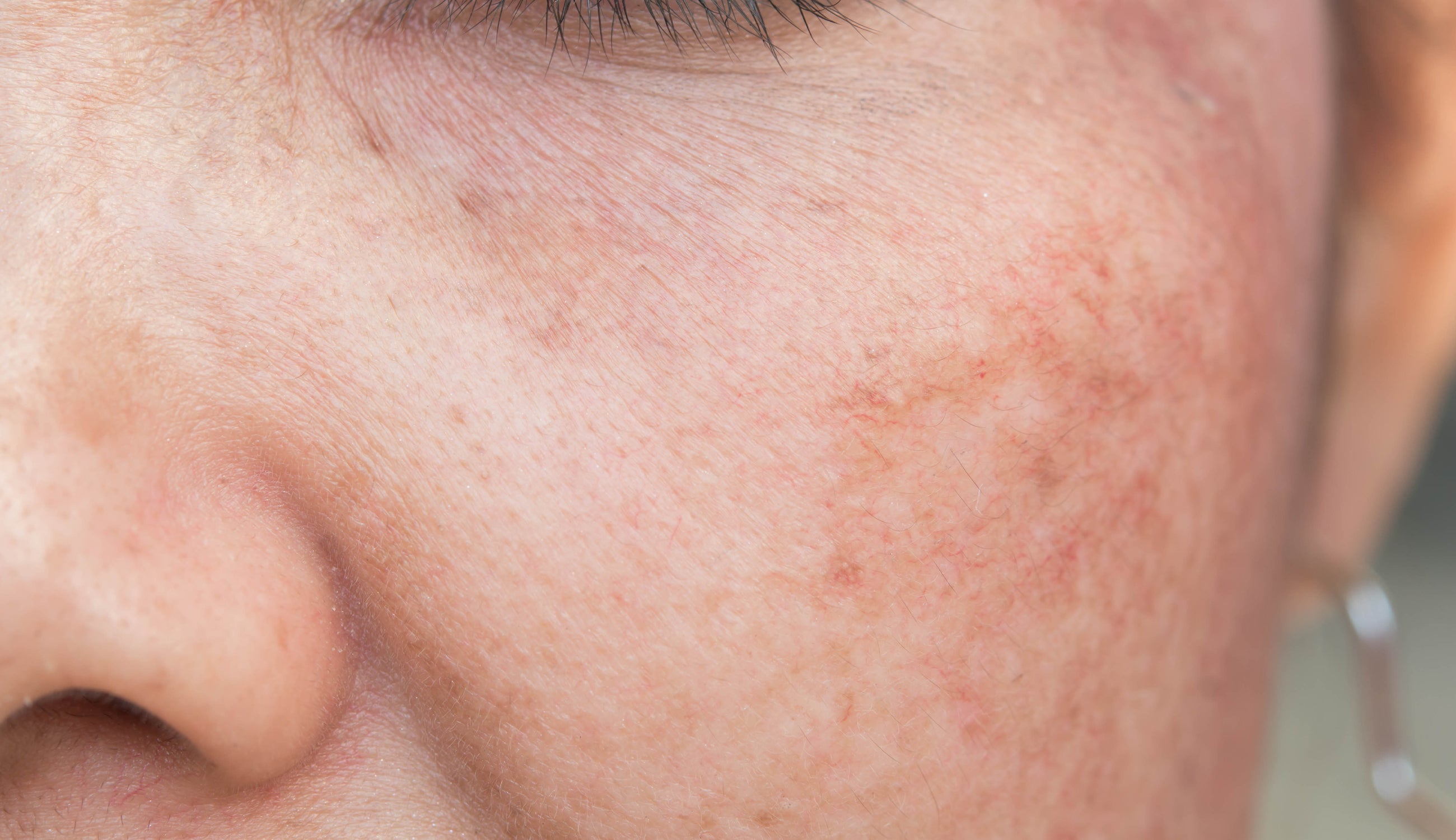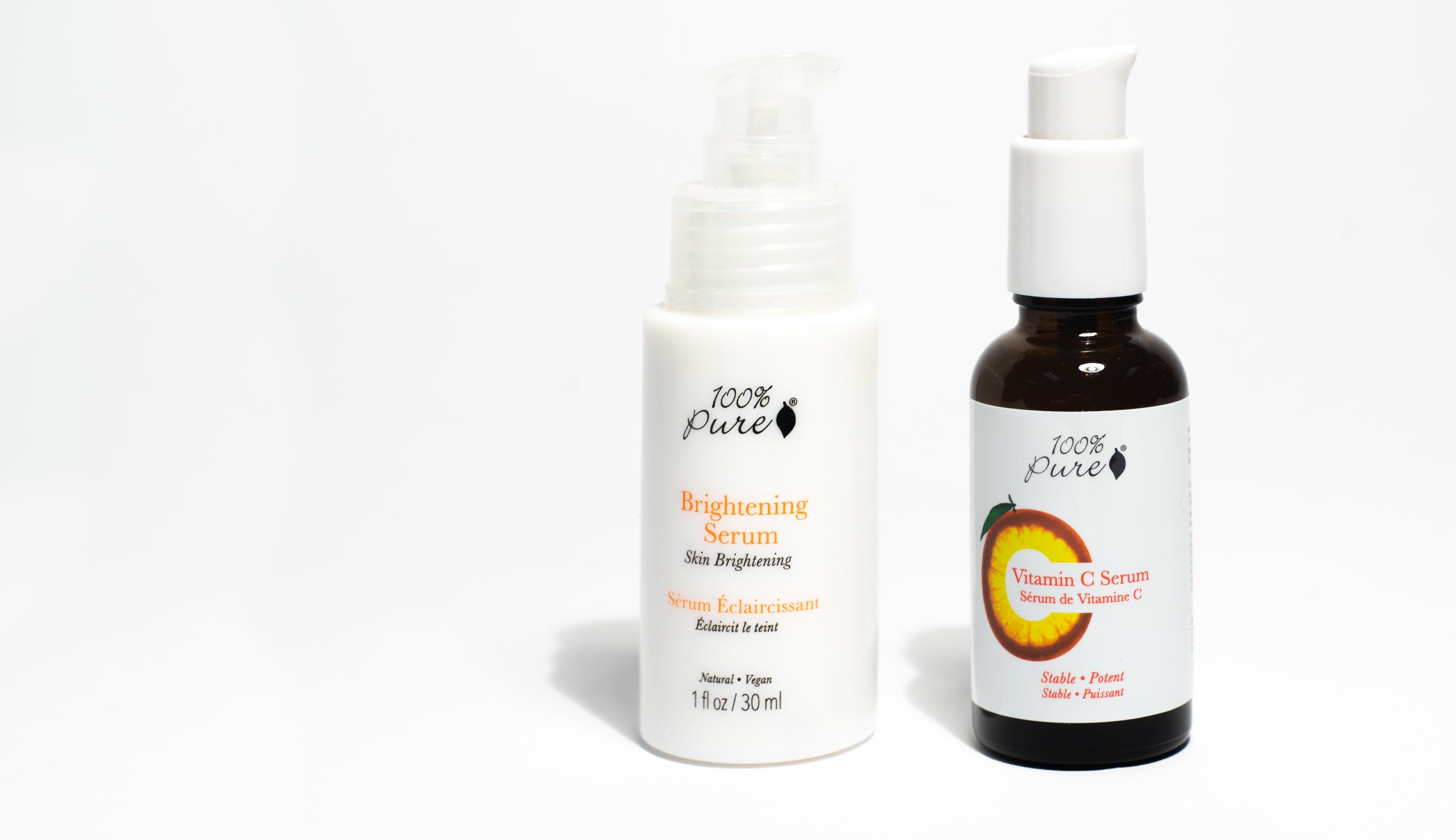How to get lemon, grapefruit, and orange benefits from your skin care – without worrying about photosensitivity
Written by: 100% PURE®
We cannot emphasize enough how important essential oils are in plant-based skin care. They’re the hard-working, behind-the-scenes stars of our 100% PURE™ formulas, doing everything from banishing acne to fighting aging to smoothing out hyperpigmentation.
Today we’re shining a light on citrus oils, an umbrella category of essential oils that covers the wide and wonderful range of citrus fruits. Lemon, lime, orange, grapefruit, yuzu, and bergamot can all be derived into concentrated and ultra-fragrant oils, which play an important role in everyday healthy skin maintenance.
But wait – doesn’t citrus sensitize the skin? These are acidic fruits after all, and acids can be known to make skin more vulnerable to light. Since photosensitivity in summer (or any time of year) is no joke, it’s time we cracked this case wide open! We’re discussing the pros and cons of citrus oils in summer, rules for using them safely, and how you can make them work for – not against – your skin care goals.
In terms of their holistic uses, citrus oils have energizing and mood-lifting aromatherapy benefits which make them an effective prong of many mental health boosting rituals. On the skin care side of things, they boast a long list of tremendously healing and proactive benefits.

Broadly, all types of citrus oil offer powerful antimicrobial and antibacterial benefits. This means they function as clarifiers and skin balancers, and can be super helpful to those of use suffering from acne-prone skin and congestion.
Citrus also has serious antioxidant benefits. Remember that antioxidants work at the cellular level, to neutralize free radicals: destructive molecules that damage skin cells as a result of exposure to UV rays, chemicals, and environmental toxins. Antioxidants aid in the repair of damaged skin cells and tissue, resulting in more effective skin cell regeneration. This in turn translates into the production of glowier and denser skin, more collagen, and more resilience to irritation and aging.
Citrus oils carry antioxidants in the form of vitamin C, which is remarkably abundant in all kinds of citrus fruits. Put simply, vitamin C is a vital molecule for skin health and regeneration in aging skin (and any skin with compromised self-renewal abilities). It plays an important role in collagen synthesis, and studies have shown it to be effective in preventing damage associated with exposure to UVA and UVB rays from the sun.
Note that these perks aren’t just from lemons. These are also orange benefits, grapefruit benefits, yuzu benefits – you get the idea. See how a person could become just a little obsessed with citrus?

With these beautifying benefits in mind, it’s no wonder that citrus oil-based skin care formulas are especially popular during the summer months. Citrus oil works to prevent damage wrought by sun exposure, and after the fact (if you’ve already committed the cardinal sin of sitting out in the sun), it can work to reverse and reduce photo-damage.
In fact, citrus oils are MVPs when it comes to treating hyperpigmentation. Hyperpigmentation occurs when your skin cells are harmed by sun exposure – in an effort to reduce further damage, your skin will ‘darken’ the areas of your dermis that have been exposed the most. This translates into age spots, liver spots, freckles – any small deposits of pigment that appear darker than the surrounding skin.
Applied topically, citrus oil works to encourage skin cell turnover, effectively reducing these areas of discoloration. Imagine a gentle sloughing away of dead and damaged skin cells at a micro level, to reveal even and smooth skin beneath.

With such glow-boosting benefits in mind, it’s understandable if you’re opting for the power of citrus in your summer skin care routine. Not so fast – there are a few simple rules you’ll need to follow, before diving headlong into a product lineup laced with these essential oils. Citrus is a powerfully active plant compound, and it needs to be used smartly and safely for its benefits to be effective.
In the summer months, it’s important to exercise caution with certain citrus essential oil infused products. Check out these rules to live by:
Rule #1
Never use citrus oil undiluted on your skin. They’re highly active oils with astringent properties and photosensitivity that activates under direct sunlight. Because of this, citrus oils can actually cause chemical burns on your skin if you apply them in their concentrated form before heading out into the sun. This reaction can appear as redness, blistering, or inflammation.
Rule # 2
If you’re going to be exposed to the elements during the day, even using citrus essential oil infused products can be somewhat risky. To avoid risk of skin irritation, layer sunscreen over any citrus infused products before venturing outdoors (more on this in rule #4). And if you have sensitive skin, make citrus a PM routine product, and avoid use altogether during the day.
PRO TIP: Love your vitamin C serum? Get the scoop on how to properly layer on this cult-fave citrus staple.
Rule # 3
If you’re making DIY citrus oil formulas, remember that it’s essential to adequately dilute your formula with what’s called a carrier oil, like argan oil or sweet almond oil. This will better facilitate the absorption of the oil into your skin, and will also lessen your risk of sun sensitivity. As long as your essential oil percentage stays under the recommended limit (more on that in rule #5), your finished DIY products are safe for daytime use.
Rule # 4
Do a little research before using your favorite citrus-scented body care during the day. Body care products containing citrus are safe to use in the sun, only if the amounts of citrus essential oil in the formulas meet IFRA standards. The International Fragrance Association warns that percentages of citrus oils higher than 0.7% - 4% (the number is dependent on the type of citrus) can cause skin photosensitivity.
The main takeaway? If citrus falls low on the list in any given formula, sun sensitivity shouldn’t be a problem. This tends to be the case with citrus body care products, which use citrus primarily for scent, and secondarily for skin benefits. If you want to be sure, ask your choice body care brand about the percentages in their citrus-infused body care.
Rule # 5
Our line of blood orange based body care is absolutely safe to use in the sun, as the citrus percentage in the formula is low, and falls late on the ingredient list. The main takeaway? If citrus falls low on the list in any given product formula, sun sensitivity shouldn’t be a problem. This tends to be the case with citrus body care products, which use citrus primarily for scent, and secondarily for skin benefits.
Rule # 6
This can help to determine whether or not you’ll have an adverse chemical reaction if you go out into the sun wearing that product (keeping rules #4 and #5 in mind). Remember, less is more: essential oils are ultra concentrated. In order to reap their benefits without irritating skin, be sure to use a concentration that’s safe for you and your particular skin type.
Keep up with us on on our natural beauty blog for more ingredient guides, including more deep dives on the most popular essential oils and plant oils!
We carefully hand-select products based on strict purity standards, and only recommend products we feel meet this criteria. 100% PURE™ may earn a small commission for products purchased through affiliate links.
The information in this article is for educational use, and not intended to substitute professional medical advice, diagnosis, or treatment and should not be used as such.







